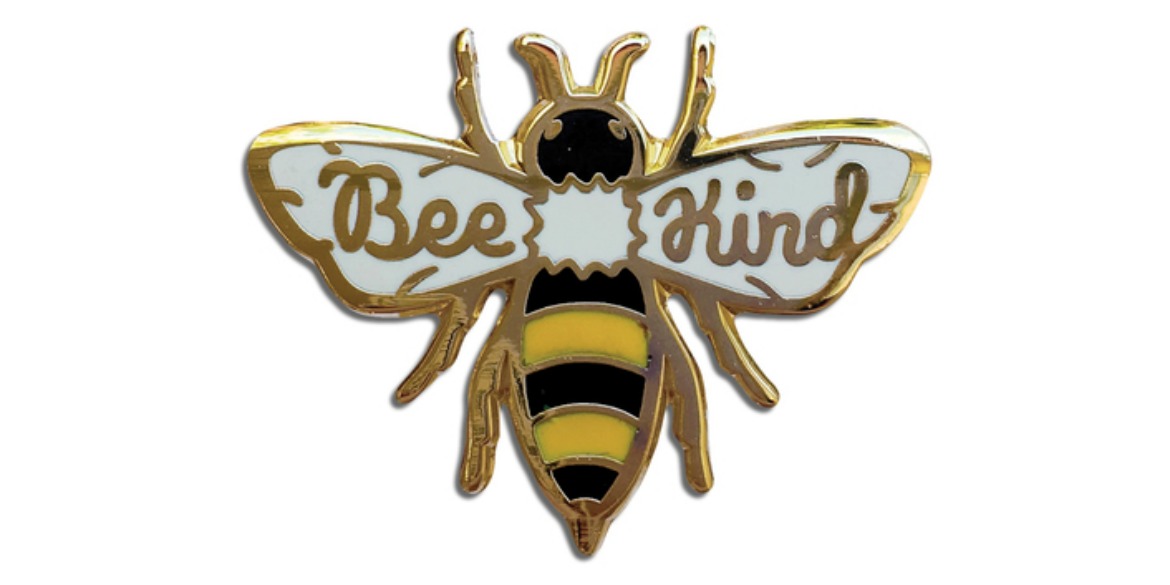Discussion of microaggressions have entered the mainstream recently, with campaigns like I, Too, Am Harvard which expose how small (and often dismissed) comments can impact the lives of entire communities. In school and workplace environments, it’s important to educate yourself about the small ways your words and actions can affect people. Learning how to be intentional with your words and actions can radically alter a school or workplace environment, making it a safer, more inviting place for all.
Shop Beholder Bee Kind Pin here!
What are Microaggressions?
Microaggressions are derogatory verbal and nonverbal actions aimed at members of marginalized groups. These groups include, but are not limited to women, people of color, LGBTQ+ community, religious minorities, and individuals with disabilities. Microaggressions may seem like nonissues, but they reflect larger structural systems of oppression that deeply hurt marginalized people. An example of a microaggression which many successful, career-oriented women experience is being called ‘bossy’ or ‘aggressive’ while her male counterpart may be admired and called ‘strong’ or “‘determined.’ These aggressions can cause marginalized people to feel unwelcome and unsafe. Identities are not static, and individuals can exist within different spheres of privilege. For example, a woman may be vulnerable because of her gender but privileged by her race or socioeconomic status. The layers of identification make it possible for anyone to commit a microaggression, so everyone should be cognizant of their words and actions.
Intention Doesn’t Matter
Microaggressions are often a result of implicit bias, so people are usually defensive when called out. A common response is ‘I didn’t mean to offend you’ which, even if true, doesn’t make the action less hurtful or demeaning. Make active choices with your words and actions, especially in an environment where you may not know your coworkers or peers well.
Microaggressions are derogatory verbal and nonverbal actions aimed at members of marginalized groups.
What You Can Do
Avoiding microaggressions is simple, and you can do so by making your words and actions intentional. Many microaggressions could be avoided if the aggressor thought about the potential impact the interaction makes. Using preferred gender pronouns and not making assumptions about someone based on their gender, race, or religion are steps you can take to make your school or workplace safer for everyone. If you commit a microaggression, try to listen, learn, apologize, and understand why your words or actions were harmful, and be more thoughtful in the future.
If you experience a microaggression, it’s up to you to decide whether to address it or not. If you are in an environment where you feel unsafe, you can approach the individual and explain why you were hurt by their words or actions. Kevin Nadal, Ph.D. suggests not to criticize the person, but to criticize the microaggression. Calling someone racist, sexist, homophobic etc. may create a larger problem, making the situation frustrating or unsafe.
More Resources
Did you really just say that? (Article)
Getting Called Out: How to Apologize (Video)
How microaggressions are like mosquito bites (Video)
Teagan Monaco is an English major, Communications Studies minor at Davidson College as well as an Editorial Intern at bSmart. Her interests include reading, writing, and photography.






Comments (0)